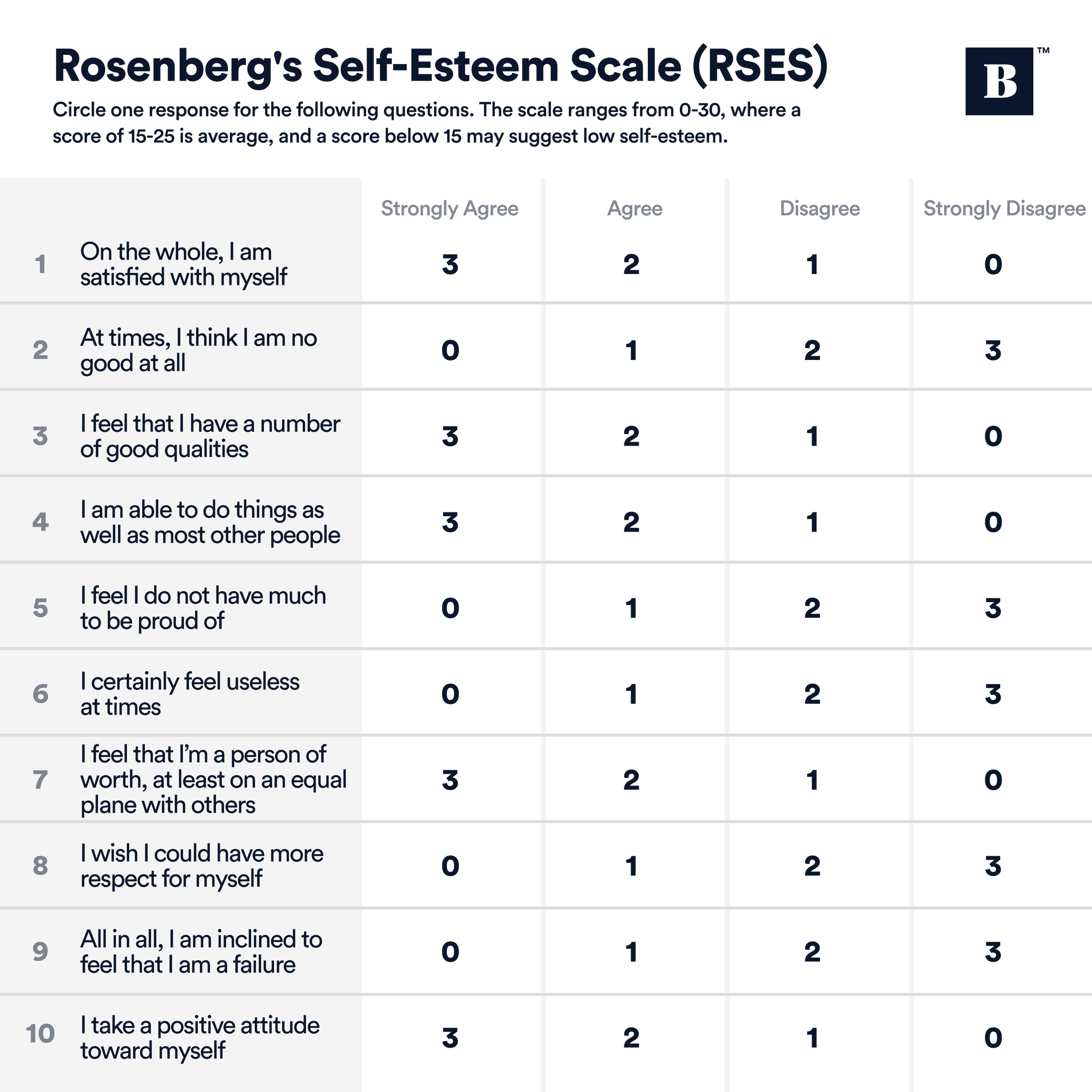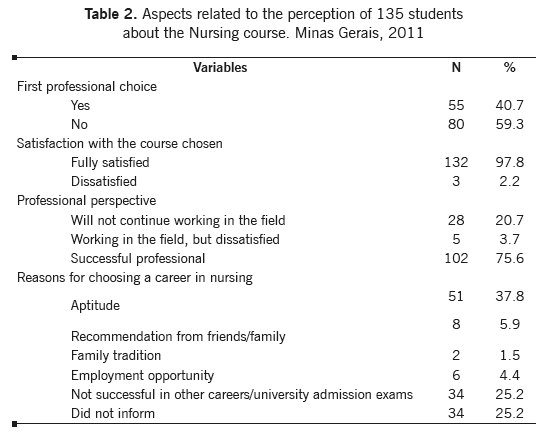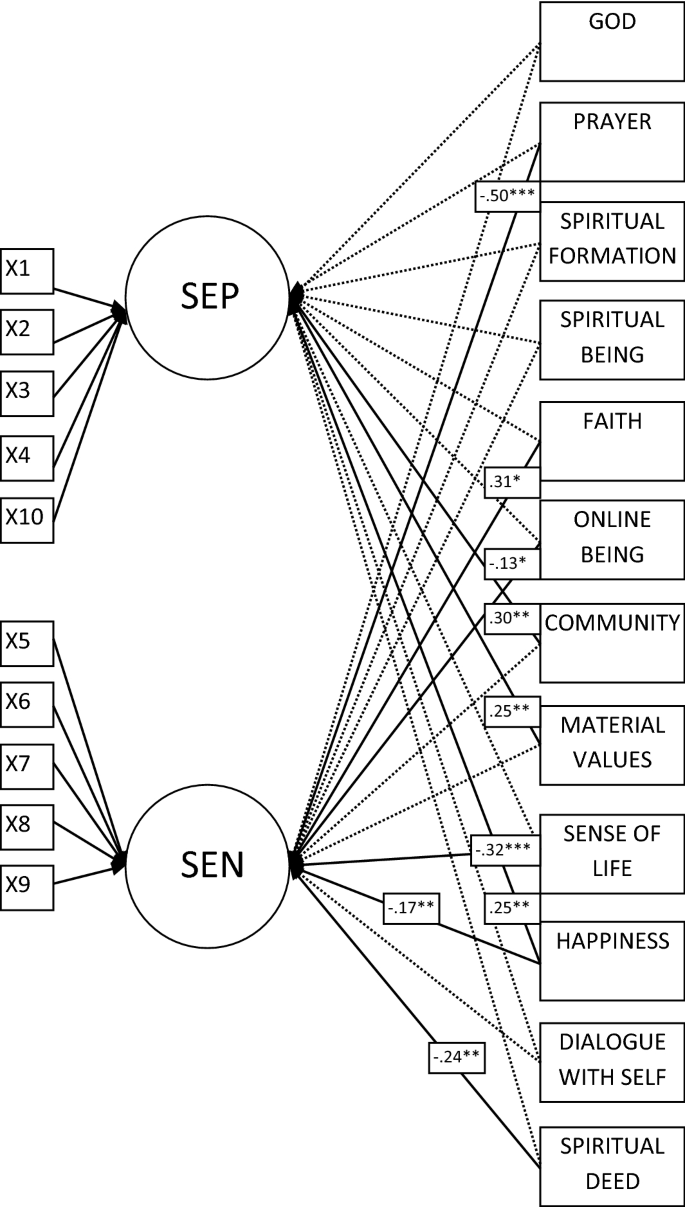The Rosenberg Self-Esteem Test is a widely used psychological tool for measuring an individual's level of self-esteem. Developed by sociologist Morris Rosenberg in 1965, the test consists of 10 statements that the respondent must rate on a scale of 1 to 4, with 1 indicating strong disagreement and 4 indicating strong agreement.
Some examples of statements on the test include "I feel that I have a number of good qualities," "I feel that I'm a person of worth, at least the same as others," and "I feel that I'm a failure." The scores on these statements are then totaled and interpreted to determine the individual's overall level of self-esteem.
Self-esteem, or the way we view ourselves, is an important aspect of mental health and well-being. It can affect how we interact with others, how we make decisions, and how we cope with challenges and setbacks. People with high self-esteem tend to have more confidence, feel more in control of their lives, and have a greater sense of accomplishment and satisfaction. On the other hand, low self-esteem can lead to feelings of inadequacy, low self-worth, and a negative outlook on life.
The Rosenberg Self-Esteem Test is often used by mental health professionals to assess an individual's self-esteem and to identify any potential issues that may need to be addressed in therapy or counseling. It can also be used by researchers studying self-esteem and its impact on various aspects of an individual's life, such as relationships, career success, and overall well-being.
One limitation of the Rosenberg Self-Esteem Test is that it is based on self-report, which means that the scores may be influenced by how the individual perceives themselves and how they want to present themselves to others. It is also not a comprehensive measure of self-esteem, as it only assesses a limited number of aspects of self-worth.
Overall, the Rosenberg Self-Esteem Test is a useful tool for understanding an individual's level of self-esteem and identifying any potential issues that may need to be addressed. It is important to note, however, that self-esteem is a complex and multifaceted construct, and the test should be used in conjunction with other assessments and interventions in order to get a fuller understanding of an individual's self-worth and well-being.



